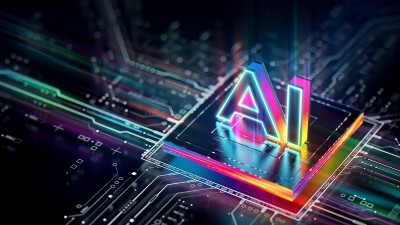How can food, beverage companies better harness AI? Focus on the human element

"AI is a great additional tool. ... We view it as almost this new opportunity to be able to utilize the current datasets, new frameworks — being able to analyze — but it doesn't take away the need for a human to access it, to understand the questions that are being asked in the right way, and to frame conversations. So, we look at it just an additional tool, a great tool, but needing that human connection and the framework to be able to … unlock it in the ways that are most helpful," said Emily Gee, marketing director at AeroFarms.
Don't chase the shiny object, focus on solving consumer problems
Companies deploying AI in their organization should focus less on the hype and what problem they are looking to solve for the consumers, said Stephanie Retcho, CMO at Hungryroot.
“We're using technology to solve a burdensome problem for customers, and I think that's the key. In terms of things to watch out for when you're leveraging AI. What question are you trying to answer? What problem are you actually trying to solve?” she said. “I think that in our space, there's a little bit of chasing what's shiny and not really spending the right amount of time figuring out what problem you're trying to solve.”
CPG companies can solve a range of problems with AI and use it to gain insight into how to improve their sales process, better market to consumers, and more, the panelists shared. Recently, Aerofarms used its AI platform to better understand how its customers were using its Micro greens products and used that information to create a better website to explain the benefits of the products, Gee said.
"AI has helped to also understand our consumer better so that we can then create a more targeted experience on our website," Gee said. "It's a great way for them also being able to have SEO and digital optimization that's then aligned with those target audiences. But again, always making sure that there is a person and that … checks-and-balances system."
Keeping humans in the decision-making seat
While AI can drive efficiency, the technology shouldn't replace humans in making business decisions, noted Mir Ali, head of digital engineering at Kraft Heinz Company.
“At the end of the day, this is a technology, and there's room for error. So, we need to make sure this does not overtake human capabilities," Ali said. "At the end of the day, human needs to be in the loop to actually make that trigger ... so it's not accurate. It's not 100%, and it's not going to replace anybody."
Though AI might not replace humans, organizations might need to shift roles and responsibility around to better capitalize on the technology, Retcho noted.
“To those who think that [AI is] about losing jobs or a threat to jobs, I think it might shift responsibilities, but I think that the notion that there's a complete replacement there is a little bit of a misnomer... There's going to need to be human intervention to guide, to create the framework that you apply with AI, and that probably just shifts a little bit where you put roles and responsibilities.”



![[Video] IFT prepares food, beverage professionals for the future of AI with educational courses](/var/wrbm_gb_food_pharma/storage/images/_aliases/wrbm_medium/publications/food-beverage-nutrition/foodnavigator-usa.com/article/2023/11/30/video-ift-prepares-food-beverage-professionals-for-the-future-of-ai-with-educational-courses/16976622-1-eng-GB/Video-IFT-prepares-food-beverage-professionals-for-the-future-of-AI-with-educational-courses.png)












